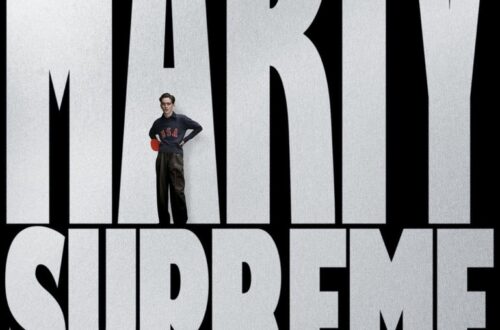He Went That Way, the 2024 crime drama directed by Jeffrey Darling, stakes its claim as a peculiar and visually compelling entry into the true-crime genre. Anchored by Jacob Elordi and Zachary Quinto, the film follows a 19-year-old serial killer who hitches a ride from a down-on-his-luck animal handler, and the duo’s journey shifts from uneasy to unnerving as tension and mistrust build in the dusty silence of Route 66.
What the film lacks in cohesion, it makes up for in atmosphere. The vastness of the American highway becomes a character in its own right, with cinematographer Sean Bagley capturing sun-drenched desolation through the windshield, or framing characters in motel rooms where smoky golden light slants through Venetian blinds. Even critics who found the script wanting concede that each shot feels “like a million bucks,” and it is this craftsmanship that rooted He Went That Way as undeniably cinematic.
Jacob Elordi, as the quietly menacing Bobby Falls, brings a brooding charisma to a character always coiled and unpredictable. He teeters between charming and chilling so effortlessly that at times he is the only thing anchoring the film’s moral ambiguity. Opposite him, Zachary Quinto’s Jim Goodwin is a portrait of quiet desperation—world-weary, emotionally depleted, and clinging to the semblance of purpose through his celebrity chimpanzee sidekick. Quinto’s control, even as the character unravels, becomes one of the film’s most grounding elements.
But as slick as the visuals may be, the script often feels like a construction—parts borrowed from Coen Brothers–style road comedies, slices of noir, even touches of black humor that never fully coalesce. Critics noted that despite its sincerity, the film fails to settle into a clear tone. Is it dark road trip satire? Noirish drama? A morbid buddy story? The shifting lanes can feel disorienting, leaving the viewer unsure what the film wants to be.
Still, He Went That Way is not without its odd charms. There’s a moment in a roadside diner, for example, where Jim is approached by a man aggressively selling knives—an absurd and tense interlude that cuts between threat and gallows humor in a single beat. And while certain sequences—particularly those exploring Bobby’s disturbed psyche—drift into unmotivated territory, it’s the film’s surreal undercurrents that linger most after the credits roll.
The backdrop of a true story adds an extra layer of discomfort. Inspired by real-life encounters between a serial killer and an oblivious animal trainer, the film processes themes of violence, naivety, and fate in a way that feels almost mythical. Tragedy shadows the production: this was Jeffrey Darling’s first feature, and he passed away before post-production was completed. The wistful, melancholic tone of the film, as well as its visual precision, now also stand as a creative legacy of a director whose voice was cut short.
In the end, He Went That Way is a film of contradictions—beautifully shot but narratively uneven, based on compelling real events but filtered through an odd, art-house lens. Elordi’s raw magnetism and Quinto’s subdued sorrow lend it emotional weight, even when the story feels adrift. Fans of slow-burning, offbeat crime tales will find something to chew on here, and cinephiles will appreciate the aesthetic care, but those seeking clarity or cohesion may find themselves as unsettled as the characters themselves.
He Went That Way may not follow a straight path—but that, perhaps, is exactly its point. It’s a film that meanders through darkness, despite its glinting, sun-baked cinematography, and invites the viewer to ride shotgun on a journey where even the landscape feels troubled.




